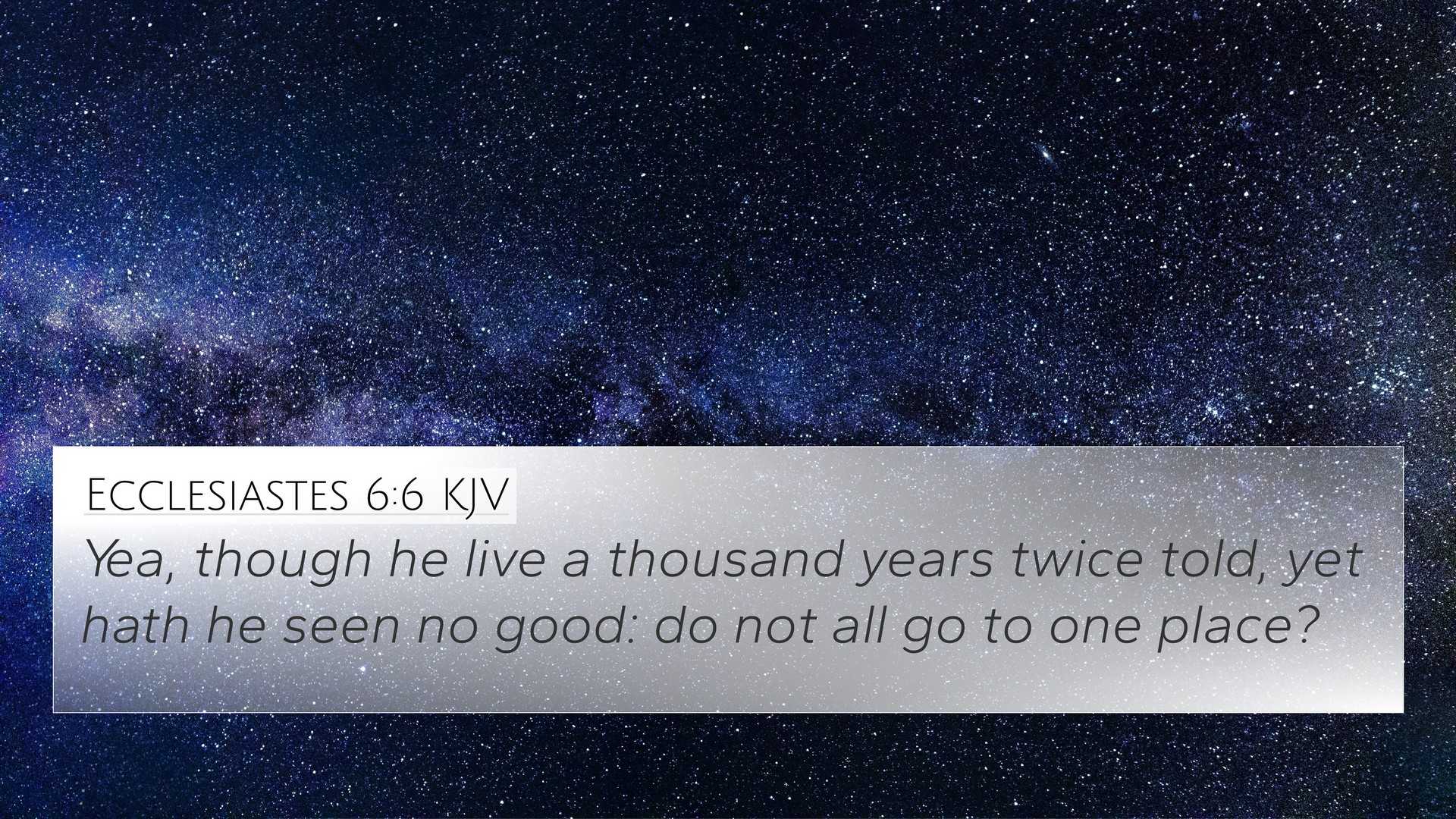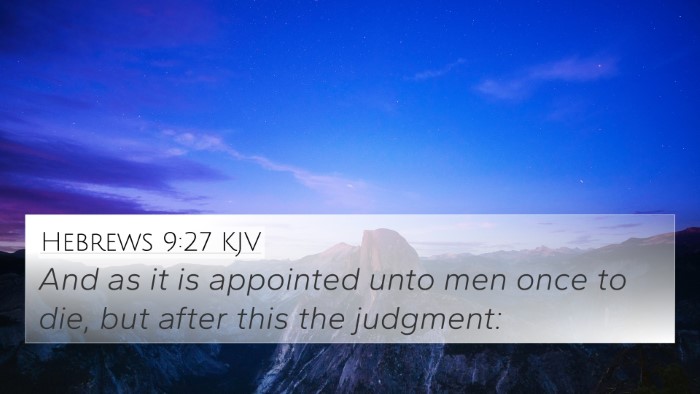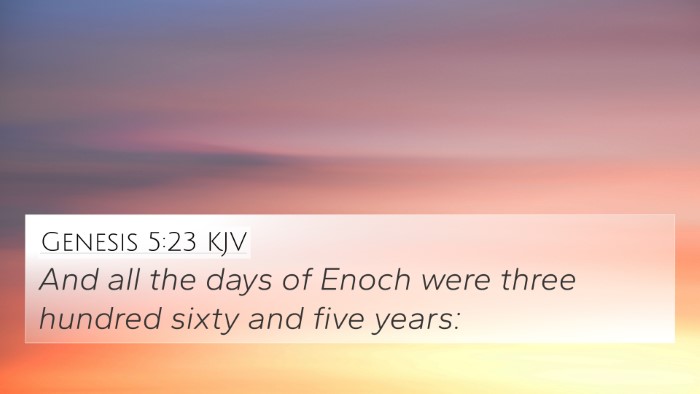Old Testament
Genesis Exodus Leviticus Numbers Deuteronomy Joshua Judges Ruth 1 Samuel 2 Samuel 1 Kings 2 Kings 1 Chronicles 2 Chronicles Ezra Nehemiah Esther Job Psalms Proverbs Ecclesiastes Song of Solomon Isaiah Jeremiah Lamentations Ezekiel Daniel Hosea Joel Amos Obadiah Jonah Micah Nahum Habakkuk Zephaniah Haggai Zechariah MalachiEcclesiastes 6:6 Similar Verses
Ecclesiastes 6:6 Cross References
Yea, though he live a thousand years twice told, yet hath he seen no good: do not all go to one place?
Uncover the Rich Themes and Topics of This Bible Verse
Listed below are the Bible themes associated with Ecclesiastes 6:6. We invite you to explore each theme to gain deeper insights into the Scriptures.
Ecclesiastes 6:6 Cross Reference Verses
This section features a detailed cross-reference designed to enrich your understanding of the Scriptures. Below, you will find carefully selected verses that echo the themes and teachings related to Ecclesiastes 6:6 KJV. Click on any image to explore detailed analyses of related Bible verses and uncover deeper theological insights.

Job 30:23 (KJV) »
For I know that thou wilt bring me to death, and to the house appointed for all living.
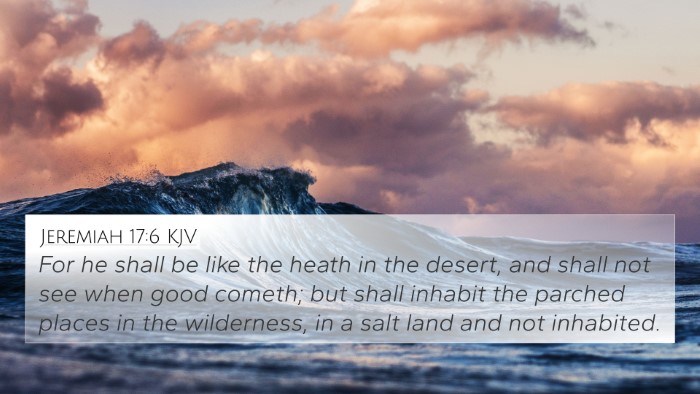
Jeremiah 17:6 (KJV) »
For he shall be like the heath in the desert, and shall not see when good cometh; but shall inhabit the parched places in the wilderness, in a salt land and not inhabited.

Isaiah 65:22 (KJV) »
They shall not build, and another inhabit; they shall not plant, and another eat: for as the days of a tree are the days of my people, and mine elect shall long enjoy the work of their hands.
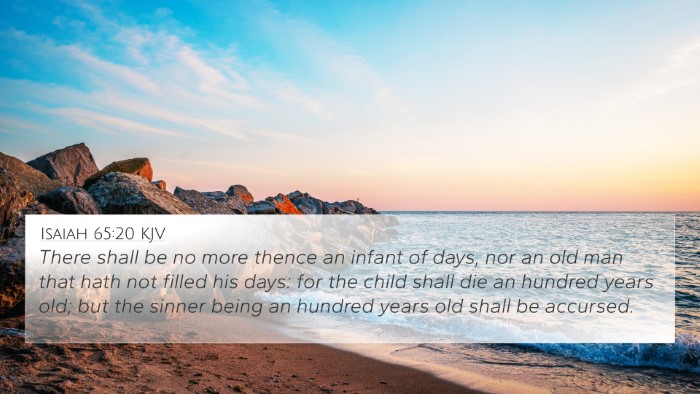
Isaiah 65:20 (KJV) »
There shall be no more thence an infant of days, nor an old man that hath not filled his days: for the child shall die an hundred years old; but the sinner being an hundred years old shall be accursed.
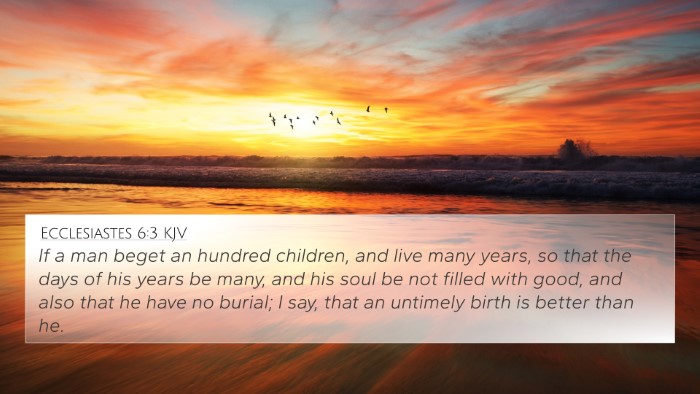
Ecclesiastes 6:3 (KJV) »
If a man beget an hundred children, and live many years, so that the days of his years be many, and his soul be not filled with good, and also that he have no burial; I say, that an untimely birth is better than he.
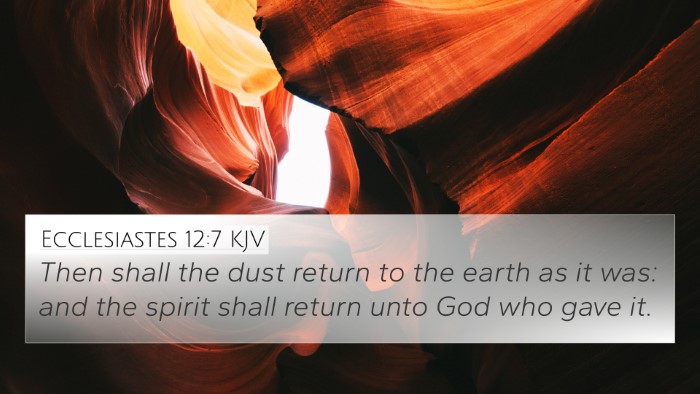
Ecclesiastes 12:7 (KJV) »
Then shall the dust return to the earth as it was: and the spirit shall return unto God who gave it.

Psalms 4:6 (KJV) »
There be many that say, Who will shew us any good? LORD, lift thou up the light of thy countenance upon us.
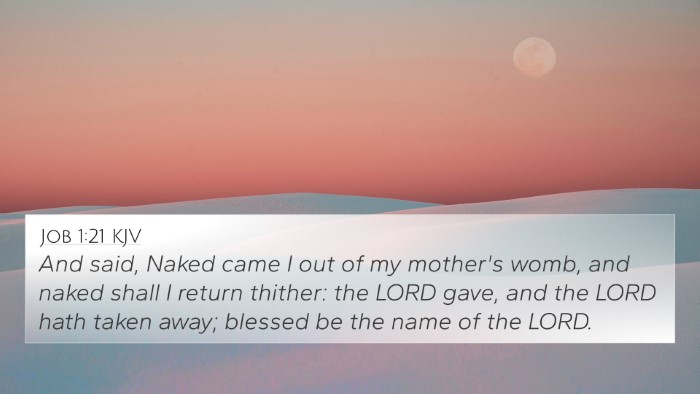
Job 1:21 (KJV) »
And said, Naked came I out of my mother's womb, and naked shall I return thither: the LORD gave, and the LORD hath taken away; blessed be the name of the LORD.
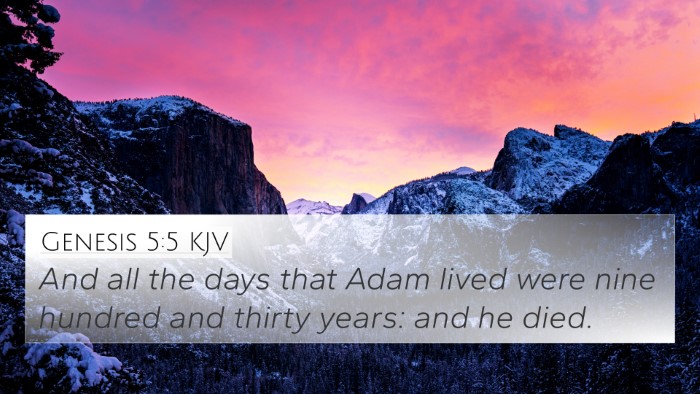
Genesis 5:5 (KJV) »
And all the days that Adam lived were nine hundred and thirty years: and he died.
Ecclesiastes 6:6 Verse Analysis and Similar Verses
Understanding Ecclesiastes 6:6
Ecclesiastes 6:6: "Yea, though he live a thousand years twice told, yet hath he seen no good: do not all go to one place?"
Verse Meaning and Insights
This verse delves into the plight of human experience, emphasizing the futility of life, even over an extensive timeframe. The author, traditionally thought to be Solomon, reflects on the inevitability of death and the common end that befalls everyone, regardless of their temporal achievements.
According to Matthew Henry's Commentary, this verse illustrates the vanity of life when one has not enjoyed the fruits of their endeavors. The idea that someone could live for an extraordinarily long time yet still find no true reward highlights a central theme in Ecclesiastes: the search for meaning in life's gifts often ends in disappointment.
Albert Barnes adds to this interpretation by stressing that the sage's view here revolves around the idea that longevity and riches do not guarantee happiness or fulfillment. Even when one has lived for a millennium, the ultimate conclusion of life's pursuits may lead to a profound sense of emptiness if those pursuits are not rooted in wisdom or spiritual fulfillment.
Adam Clarke interprets this verse as a reminder of the transient nature of life and the inevitability of death, suggesting that all humans, regardless of their aspirations or accomplishments, share the same fate. Clarke suggests contemplating what it means to truly "see good" in life and encourages the reader to seek divine wisdom rather than earthly achievements.
Bible Verse Cross-References
To enrich your understanding of Ecclesiastes 6:6, one can explore various related scriptures that resonate with its themes:
- Ecclesiastes 3:20: "All go to one place; all are from the dust, and to dust, all return." - This verse emphasizes the common destiny of all people.
- Ecclesiastes 9:2: "All things come alike to all: there is one event to the righteous, and to the wicked..." - Furthering the idea of life's equalities.
- Job 14:1-2: "Man that is born of a woman is of few days, and full of trouble." - Highlights the brevity and challenges of life.
- Psalms 39:4-5: "Lord, make me to know mine end, and the measure of my days..." - A contemplative perspective on the fleeting nature of life.
- Proverbs 27:1: "Boast not thyself of tomorrow; for thou knowest not what a day may bring forth." - The uncertainty of life’s future.
- James 4:14: "For what is your life? It is even a vapor that appeareth for a little time, and then vanisheth away." - A New Testament reflection on the brevity of life.
- Luke 12:15: "And he said unto them, Take heed, and beware of covetousness: for a man's life consisteth not in the abundance of the things which he possesseth." - Explores what is truly valuable in life.
Connections Between Bible Verses
Ecclesiastes serves as a pivotal text within the wisdom literature of the Bible, encouraging readers to consider life’s purpose in light of mortality. The recurring themes invite an exploration into some significant areas:
- Thematic Bible Verse Connections: The concept of vanity and pursuit of meaning is echoed throughout the Old Testament, notably in Proverbs and Psalms.
- Linking Bible Scriptures: Cross-referencing Ecclesiastes with the teachings of Jesus can illuminate the contrast between earthly living and spiritual richness.
- Comparative Bible Verse Analysis: Mark 8:36 serves as a contemporary counterpart: "For what shall it profit a man, if he shall gain the whole world, and lose his own soul?"
- Identifying Connections: The urgency of finding value before the inevitable end is a connection seen between Ecclesiastes, Job, and Paul’s writings in the New Testament.
Tools for Bible Cross-Referencing
For meaningful Bible study, utilizing tools for cross-referencing can enhance your understanding of interconnected verses:
- Bible Concordance: A helpful resource for locating words and phrases across different scriptures.
- Bible Cross-Reference Guide: Can assist in identifying relevant passages that share similar themes or ideas.
- Cross-reference Bible Study: Engaging in structured study methods to compare thoughts and teachings across scripture.
- Bible Chain References: Following a thematic chain through various texts for a holistic view of a concept.
Conclusion
In conclusion, Ecclesiastes 6:6 serves as a poignant reminder of the fleeting nature of life and the importance of defining what is "good" in one's existence. The insights from the renowned commentaries of Matthew Henry, Albert Barnes, and Adam Clarke provide depth to the understanding of this verse and encourage thoughtful reflection on life's priorities.
